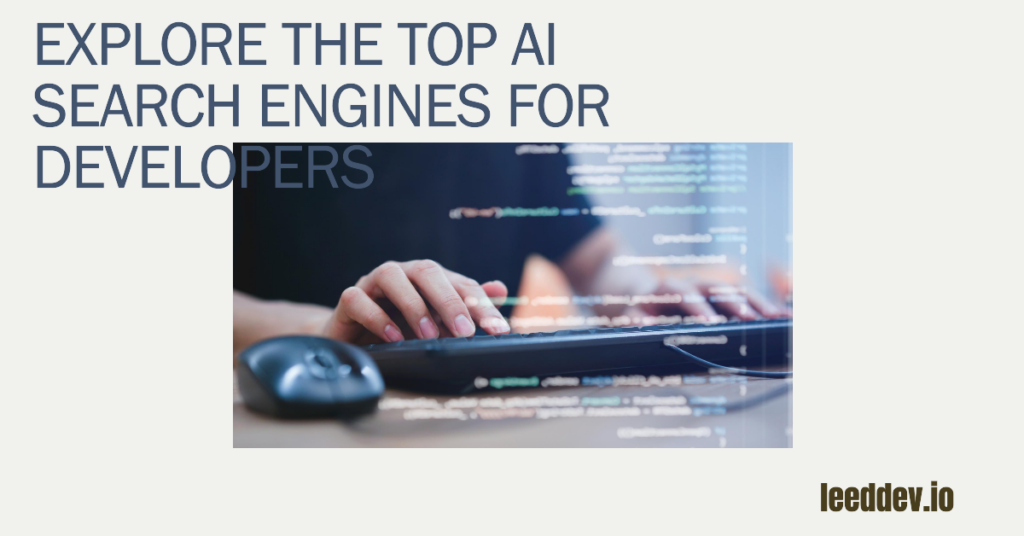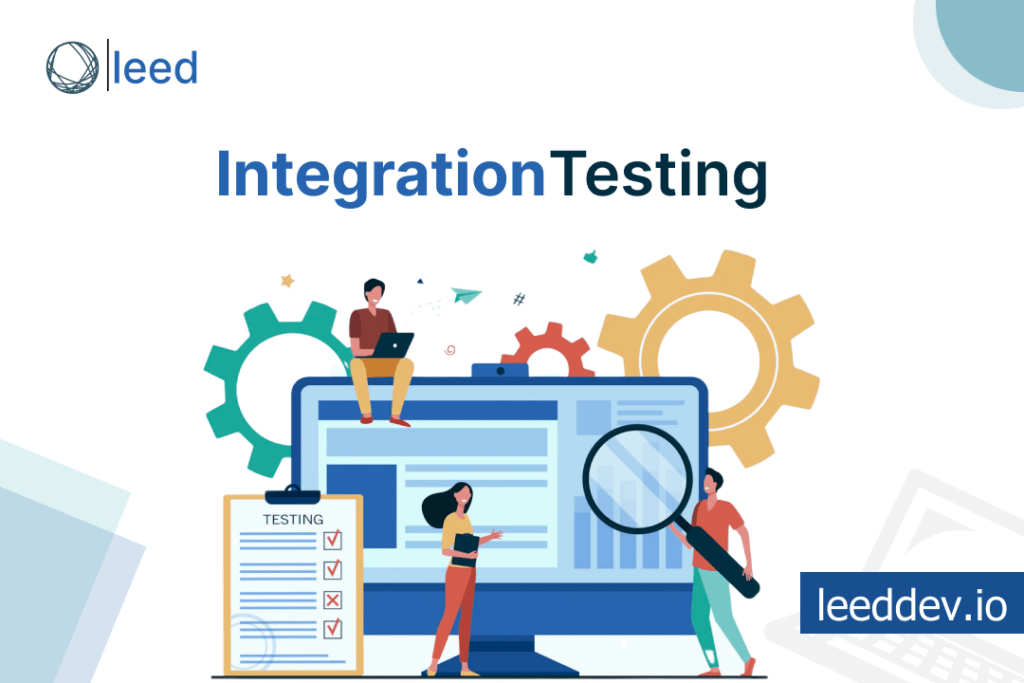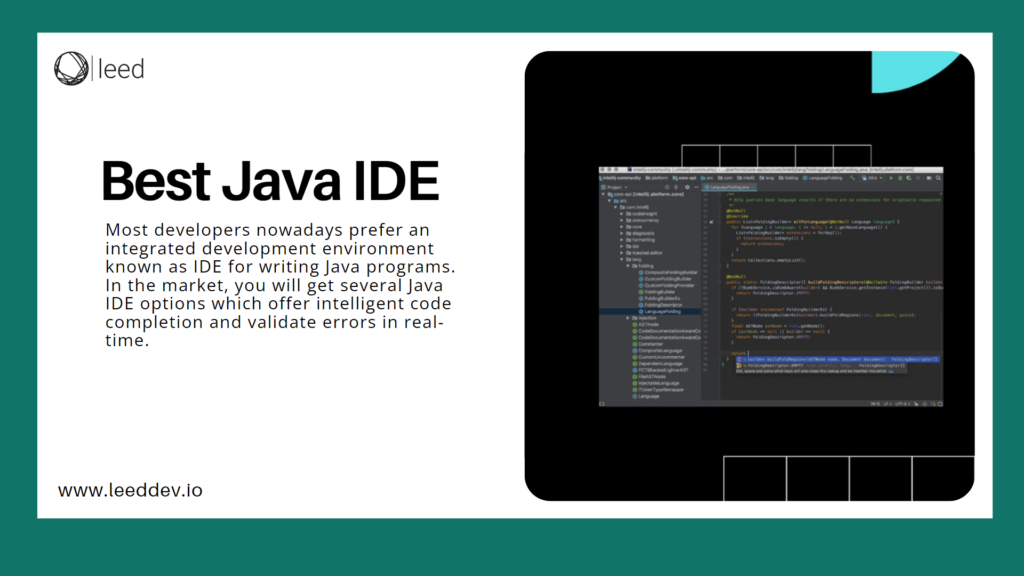AI search engine for developers are tools that use Artificial Intelligence and natural processing technologies to improve search processes. By using NLP and AI technologies, these engines comprehend search queries. Powered by AI technologies, they can handle language queries, understand user’s internet, and deliver answers from different sources.
These search engines provide a more personalised and efficient search experience for their users. When algorithms are combined with user interfaces, we can get more generative and intuitive results.
Definition of AI Search Engines
First question that arises is, what is a search engine? Search engine is a software system with the help of which users can find web pages which match the web search criteria. AI search engine for developers use different technologies to enhance search results.
These technologies mainly include machine learning, computer vision, speech recognition, and much more. With the help of these AI-powered technologies, it is possible for artificial intelligence search engines to analyse results based on relevance or authority.
Importance of AI Search Engines For Developers
With the help of AI search engines, developers increase their productivity and efficiency. However, some of the main points which highlight the importance of Artificial Intelligence search engines are as follows:
- With the help of AI search engines, it’s easy for developers to quickly find relevant codes and handle errors or troubleshooting problems.
- Artificial Intelligence search engines identify vulnerabilities, and it’s easy for developers to boost code integrity. Similarly, it reduces the chance of errors.
- Collaboration is also improved because of these AI search engines for developers. These engines help to increase teamwork through AI’s insights. Code evaluation is also made simpler.
- Bug eradication is easy as AI-powered search engines help in finding the bugs in your software.
- Developers can use AI search engines to generate code snippets, which in return saves time on daily tasks.
Explanation of How AI Search Engines Work
AI search engine for developers work with the help of various algorithms and techniques which help understand the user queries. The following process explains how AI search engines work:
Data Indexing
First step is Data Indexing, in which the search system starts by indexing the content available on multiple platforms. Involves analysing the web pages to create an index. This index represents attributes, including keywords, metadata, etc.
Understanding the Query
After the search query is entered by the user, the system uses NLP to understand queries. This is done by breaking the query into tokens, identifying keywords and considering context.
Relevance Ranking
AI search engine for developers use different methods to find related matches in database. Search engines look for specific keywords, ML models and semantic analysis to give results. Also provides relevant scores to help in ranking order.
Related Results
Based on the scores, the search system provides results that are considered most relevant to the query given by the user. Results are presented in a ranked order where the most relevant appears at the top.
Personalisation
By considering different factors like demographics, past behaviours or feedback, AI search engines provide personalised results. The system utilises user data and preferences to generate results based on the user’s needs and preferences.
Key Components of AI Search Engines
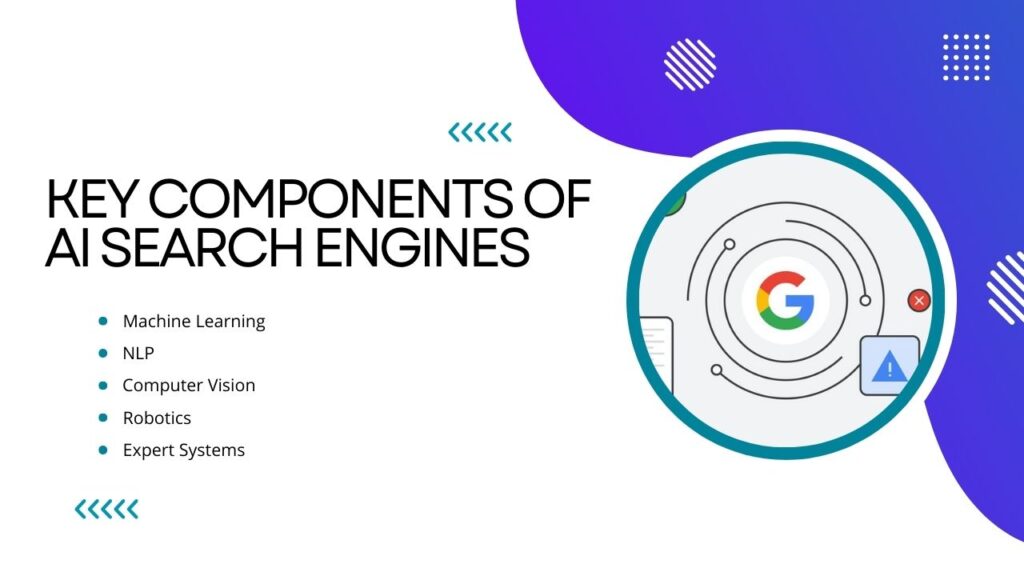
The main components of AI search engine for developers are as follows:
| Components | Definition |
|---|---|
| Machine Learning | Focuses on building algorithms and statistical models to improve performance. |
| NLP | Creates interaction between humans and computers by using natural language |
| Computer Vision | Enables machines to understand and interrupt visual information |
| Robotics | Focus on development of robots which are capable of performing task autonomously |
| Expert Systems | For creating computer programs having the ability to make decisions like humans |
Best AI Search Engine for Developers
Many AI Search Engine for Developers are present; however, the list of important search engines is as follows:
Google Search Engine
Google search is the most widely used AI search engine worldwide. Powered by AI technologies and is constantly improving to deliver accurate and up to date results. Main features of Google search are as follows:
Komo
Komo is an AI search engine for developers which uses NLP and ML to give specific results. Goal is to give relevant information and services based on the user’s data. Main features of Komo are as follows:
- Provides private and quick personalised results.
- Features a chatbot that gives answers to your queries
- Opening an account in Komo is free.
Waldo
Waldo is another AI search engine for developers that focuses on privacy as well as data protection. By using user’s privacy, Waldo provides relevant information while protecting user privacy. Features of Waldo are as follows:
- Provides alert notifications
- Bug tracking is easy in the Waldo search engine
- Protects the privacy of users and secures their data
Bing AI
Bing AI enhances users’ experience by utilising machine learning techniques and AI technologies. It’s an AI search engine for developers that uses deep learning models and knowledge graphs to provide contextual search results. The main features of Bing AI are as follows:
- Offers Bing chat feature, which gives answers to the user’s complex questions.
- Bing Image Creator is another notable feature which generates images.
- Provides AI-generated Knowledge Cards 2 for more valuable results
Yep
Yep is another AI search engine for developers that specialises in visual search. Allows users to search for required images and give related content as well. Yep, it uses different AI algorithms and deep learning models to give accurate visual results. The main features of Yep are as follows:
- Useful for finding visually similar results
- Analyse context words in a query to provide more accurate results
- Also provides voice search functionality.
Why Do Developers Need AI Search Engines?
AI search engines for developers play a vital role in web development. AI-powered search engines enable developers to rapidly locate code snippets, examples and libraries while AI-driven tools automate tests, detect bugs and identify security vulnerabilities to create a more reliable and secure experience on the web.
AI extends its reach into improving user experiences through features like chatbots, personalised recommendations and voice search interfaces – these features make websites more engaging and user-friendly, thus increasing satisfaction levels and conversion rates.
Meanwhile, AI analytics provide valuable insights into user behaviour, allowing developers to tailor websites for improved performance and security; AI search engines offer tools for developers that boost productivity while saving time.
Benefits of Using AI Search Engines in Development
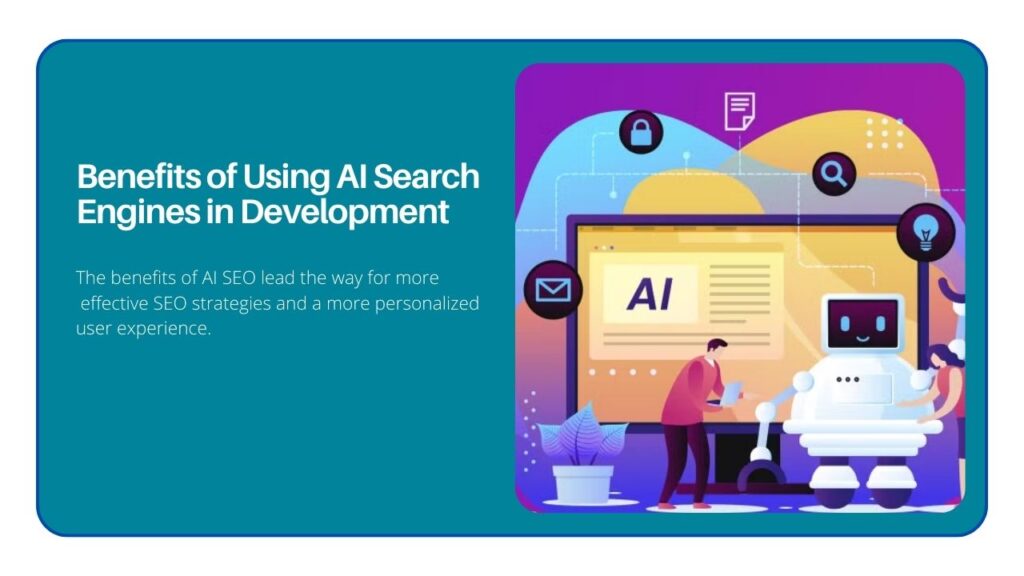
Some of the benefits of using AI search engines in development are as follows:
- AI-powered search engines use sophisticated models to provide accurate results.
- Understanding query context allows them to provide more precise results, providing users with a superior user experience.
- Specialized algorithms use user behavior analysis for tailored results.
- Find information efficiently for diverse audiences.
- Artificial intelligence algorithms provide accurate results through predictive analysis.
- Ongoing improvements ensure developers always have access to up-to-date information.
Future Trends in AI Search Engines for Developers
All of us know that AI is the future and the use of AI technologies are being used on a daily basis. Some of the future trends regarding AI are as follows:
- NLU Advancement: AI search engines will become better at understanding natural language, helping developers quickly find answers that matter.
- Code Search & Autocomplete: AI engines will quickly search for code snippets and provide autocomplete suggestions for efficient coding.
- Visual Code Search: AI engines will assist developers in visual searching for code, including screenshots and handwritten notes.
- Customized Recommendations: AI search engines will use machine learning to provide personalized suggestions such as code libraries and tutorials.
- Cross-Platform Integration: AI search engines will easily integrate into different development environments.
- Enhancing Debugging Assistance: Artificial intelligence will continue to assist developers by analyzing code and recognizing any potential issues.
Potential Drawbacks of using AI Search Engines
The drawbacks of using AI search engines are as follows:
- May not always provide accurate or relevant search results, especially when faced with ambiguous queries.
- Outdated or biassed data can lead to suboptimal search results.
- AI search engines are based on existing code patterns so may lack creativity.
- Relying on AI search engines for code suggestions or solutions can introduce security risks.
- May process sensitive code or data, raising privacy concerns, especially in environments where code must be kept confidential.
- Developers might rely too much on AI search engines, potentially reducing problem solving skills.
Conclusion
To conclude, AI search engines for developers are the best tools which are powered by a combination of AI and NLP technologies. With search engines, developers easily locate code snippets, libraries, and resources with precision.
In this way, the security is also increased. For developing reliable websites, AI powered search engines detect bugs, perform automated testing and identify vulnerabilities.
Some AI search engines also feature personalised chatbots, intuitive voice interfaces, tailored recommendations and much more. Moreover, AI-driven analytics provide developers with invaluable insights into user behaviours.
These AI search engines are improving on a daily basis and are providing up to date results for the users. But with all this there are also some AI concerns that need to be considered. The risk include privacy concerns, outdated data, lack of creativity and innovation etc.

